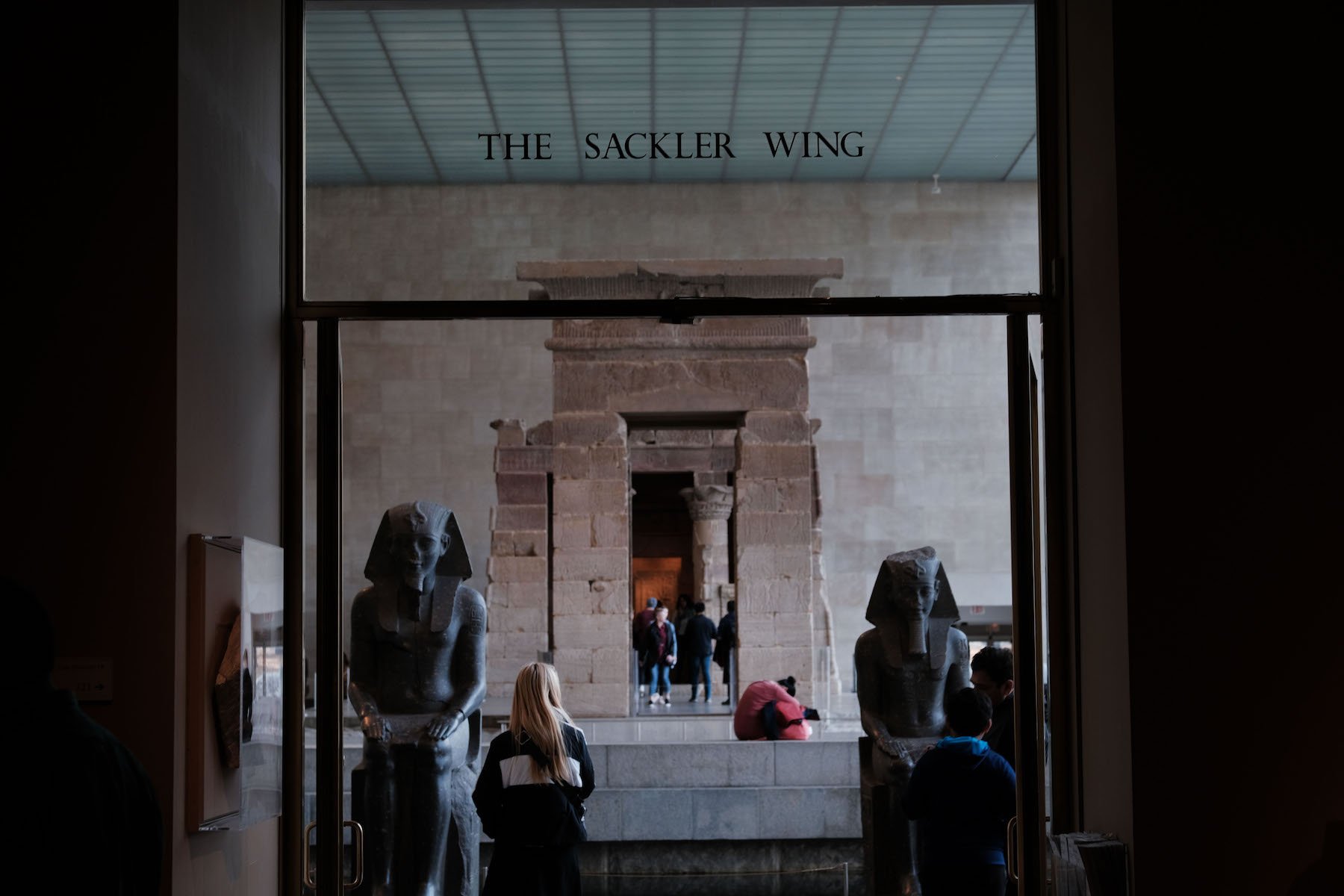
After weeks of mediation, the Sackler family has reached a settlement with nine state attorneys general and the District of Columbia to begin resolving the many civil lawsuits filed against the family for its role in the opioid epidemic.
As part of the arrangement, any institution in the U.S. would be free to remove the Sackler name from their facilities without objection. Some institutions have already made the move. In December, the Metropolitan Museum of Art in New York scrubbed the family’s name from a space known for years as the Sackler Gallery, and the Serpentine Sackler Gallery in London dropped the family’s name nine months earlier.
The new filing says the family has “agreed to allow any institution or organization in the United States to remove the Sackler name from physical facilities and academic, medical, and cultural programs, scholarships, endowments, and the like.”
It requires that any institution planning to do so give the family 45 days notice and not disparage the Sackler name. It does not, however, specify whether institutions that agreed to feature the Sackler name in perpetuity in exchange for financial gifts may also remove the name. Davis Polk, the law firm representing Purdue Pharma, declined to comment on Artnet News’s request for clarification on this point.
The Sacklers, who own Purdue Pharma, the company behind OxyContin, have also agreed to pay as much as $6 billion as part of the settlement, filed yesterday, March 3, in New York court. That figure represents a significant increase over the $4.3 billion cash payment included in a previous settlement offer, which was blocked by a federal judge last December after the Justice Department, nine states, and the District of Columbia filed an appeal.
As part of the new agreement, Purdue Pharma will henceforth be known as Knoa Pharma and be guided by a public board.
In a statement included in the filing—a requirement of the settlement—the family said it “sincerely regret[s] that OxyContin, a prescription medicine that continues to help people suffering from chronic pain, unexpectedly became part of an opioid crisis that has brought grief and loss to far too many families and communities.” The statement acknowledged no wrongdoing.
On Twitter, the non-profit activist group P.A.I.N., which was founded by photographer Nan Goldin and has staged numerous demonstrations against Purdue and the Sacklers, called the statement “horrendous.”
The group pointed specifically to the word “unexpectedly,” adding: “reminder that the Sacklers internally referred to high prescribing doctors as ‘whales’ and patented software that tracked every Oxycontin pill that was prescribed around the country.”
“After years of lies and denial, the Sackler family must now directly apologize for the pain they have caused,” Connecticut Attorney General William Tong said in a statement. “They must reckon face-to-face with the survivors of their reckless greed at a public hearing. Museums and universities may now scrub the tarnished Sackler name from their walls—ensuring this family is remembered throughout history for their callous disdain for human suffering and nothing else.”
The agreement still needs to be confirmed by Judge Robert Drain, the New York bankruptcy judge who has overseen by the case, and approved by the U.S. Court of Appeals for the Second Circuit, according to the New York Times.
Should the settlement be approved, all current and future civil cases against Purdue Pharma will be resolved. Still, the company is subject to prosecution in criminal court.
That’s where Michael Quinn, a founding board member of P.A.I.N., hopes the saga continues.
“The settlement shouldn’t be the end of this story,” he told Artnet News in an email. “Activists, artists, writers, and filmmakers exposed the Sacklers. Now it’s time for the [Department of Justice] to prosecute.”